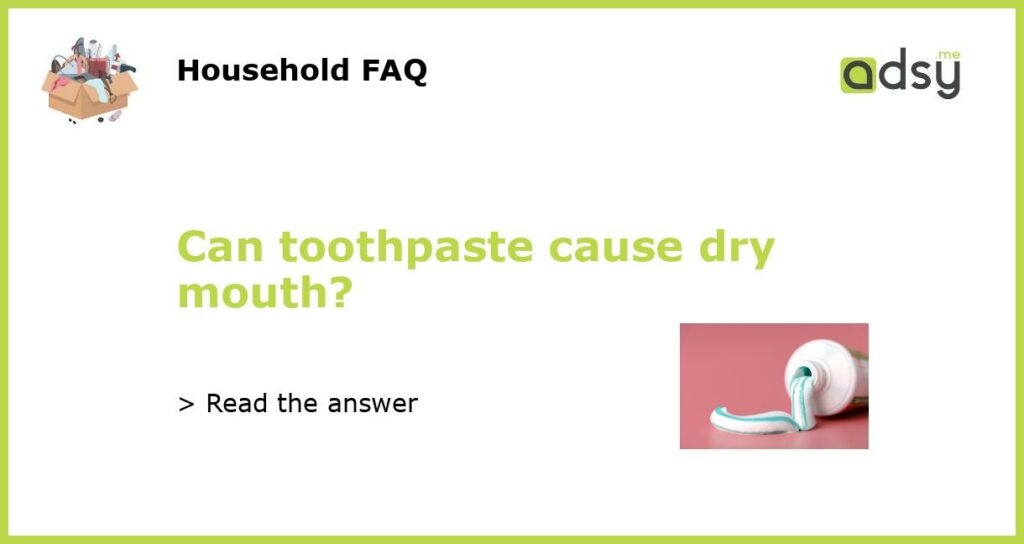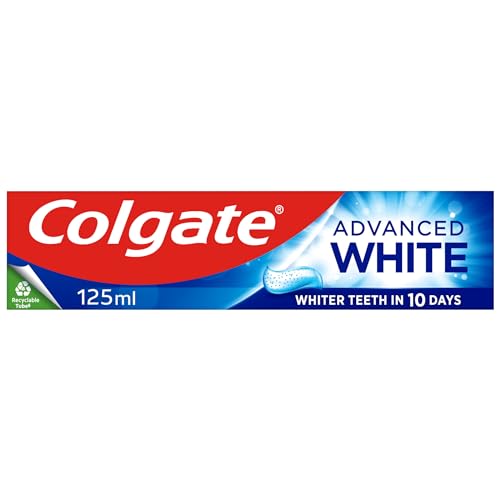Can Toothpaste Cause Dry Mouth?
Dry mouth, also known as xerostomia, is a common condition that occurs when the salivary glands fail to produce enough saliva to keep the mouth moist. While there are several factors that can contribute to dry mouth, such as medications, medical conditions, and lifestyle habits, some people wonder if toothpaste can also be a potential cause. In this article, we will explore whether toothpaste can cause dry mouth and provide some tips on how to prevent and manage this condition.
Understanding Toothpaste Ingredients
Toothpaste is a dental product that is used to clean and maintain the health of the teeth and gums. It typically contains several ingredients, such as fluoride, abrasives, detergents, humectants, and flavoring agents. While most toothpaste brands are formulated to promote oral health, some individuals may experience dry mouth as a result of certain toothpaste ingredients.
Potential Drying Agents in Toothpaste
One potential drying agent that can be found in toothpaste is sodium lauryl sulfate (SLS). SLS is a foaming agent commonly used in personal care products, including toothpaste. It is known to have a drying effect on the skin and mucous membranes. While SLS itself may not directly cause dry mouth, it can contribute to the sensation of dryness for individuals who are already prone to this condition.
In addition to SLS, some toothpaste brands may also contain alcohol, which can further exacerbate dry mouth symptoms. Alcohol has a drying effect and can lead to a decrease in saliva production. Therefore, individuals with dry mouth may want to avoid toothpaste that contains alcohol.
Preventing and Managing Dry Mouth
If you are experiencing dry mouth and suspect that toothpaste may be a contributing factor, there are several steps you can take to prevent and manage this condition:
1. Choose the Right Toothpaste
Opt for toothpaste that is specifically formulated for individuals with dry mouth. These toothpaste products are designed to provide additional moisture and lubrication to the mouth, helping to alleviate dryness and discomfort. Look for toothpaste that is free from drying agents such as SLS and alcohol.
2. Stay Hydrated
Drink plenty of water throughout the day to help keep your mouth moist. Sipping water regularly can help stimulate saliva production and prevent dry mouth symptoms. Avoid excessive consumption of caffeine and alcohol, as these substances can contribute to dehydration and worsen dry mouth.
3. Practice Good Oral Hygiene
Brush your teeth at least twice a day and floss daily to maintain good oral hygiene. Consider using a soft-bristled toothbrush and a fluoride mouthwash to further protect your teeth and gums. It is important to note that while toothpaste can contribute to dry mouth discomfort, maintaining good oral hygiene is still crucial for overall oral health.
4. Use Saliva Substitutes
If you are experiencing severe dry mouth, you may benefit from using saliva substitutes. These products are specifically designed to mimic the lubricating properties of saliva and provide temporary relief from dryness. Saliva substitutes can be found in the form of sprays, gels, and lozenges, and can be used as needed throughout the day.
5. Consult with a Dentist
If you are concerned about dry mouth or if your symptoms persist despite adopting the above measures, it is advisable to consult with a dentist. They can assess your oral health and provide personalized recommendations based on your specific needs. They may also be able to identify any underlying causes of dry mouth and recommend appropriate treatment options.
In conclusion, while toothpaste itself may not directly cause dry mouth, certain ingredients, such as SLS and alcohol, can contribute to the sensation of dryness for individuals who are already prone to this condition. Choosing the right toothpaste, staying hydrated, practicing good oral hygiene, using saliva substitutes, and consulting with a dentist are all important steps in preventing and managing dry mouth. By taking these measures, individuals can maintain good oral health and alleviate the discomfort associated with dry mouth.






